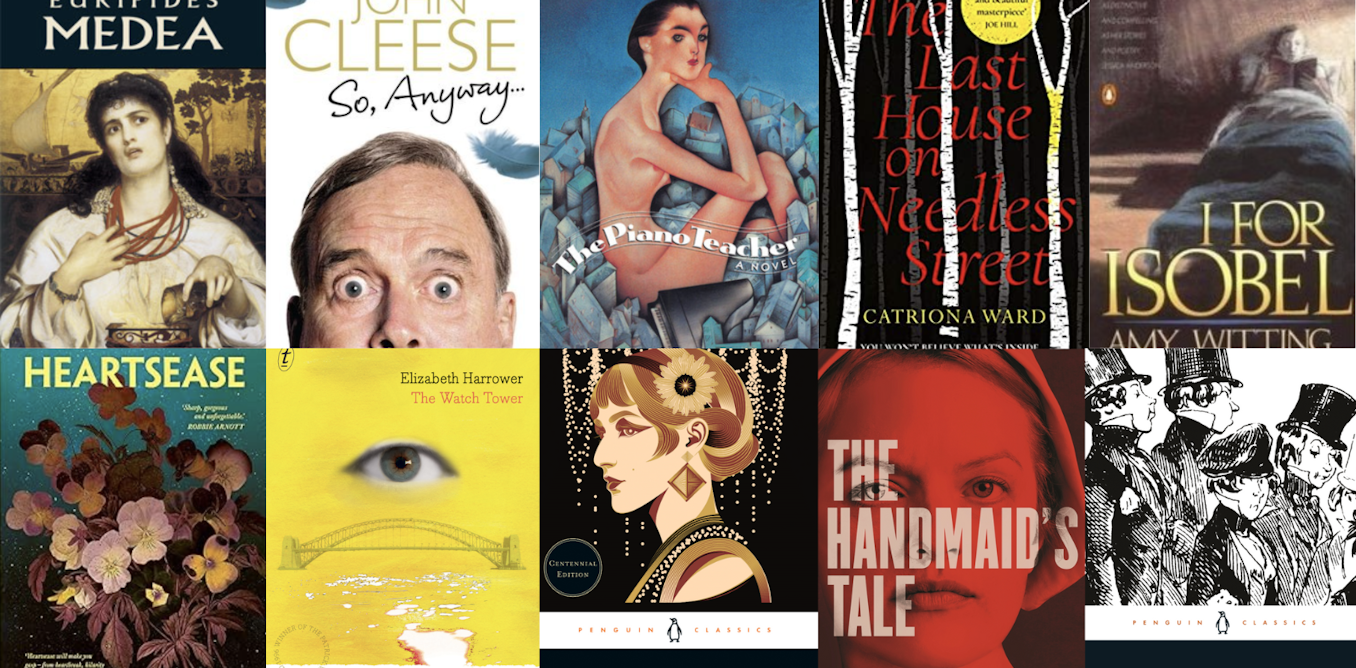The first sentence of Anna Karenina is now a literary cliche, yet contains a nub of truth. “All happy families,” writes Leo Tolstoy, “resemble one another, each unhappy family is unhappy in its own way.”
Literature brims with thwarted parents wreaking havoc in unique ways. We’ve considered the worst fathers. Now we look at troubling mothers.
A recent contender here is Arundhati Roy’s depiction of her tyrannical, infuriating yet seductive mother Mary in her new memoir.
But my choice for worst mother is a fictional character, also a Mary. In US author Sapphire’s arresting 1996 novel, Push, Mary is a violent, jealous woman who follows her husband in sexually abusing their teenage daughter, “Precious”. Amid poverty and deprivation, Mary challenges every maternal stereotype.
Here are our experts’ picks.
Stuff – Joy Williams
Your adult son has just informed you he has terminal lung cancer. Do you:
A) Say, “Oh, well.”
B) Demand he speak quietly so as not to disturb your roommate, Debbie, who is playing dystopian video games.
C) Disagree with the assessment that Gnosticism is a flawed religion incapable of forming any kind of true moral community.
D) Drink a stinger the bright green of antifreeze.
E) Kick him out because your radical silence class is about to begin.
F) Do all of the above: You are a mother in the hilarious void of Joy Williams’ story Stuff.
– Alex Cothren
Medea – Euripides
Goodreads
A princess of Colchis, she betrayed her own people to help Jason, leader of the Argonauts, capture the Golden Fleece, and then ran off with him and started a family. She kept her sorcery under wraps until Jason dumped her in favour of a princess of Corinth. This betrayal sparked a massive overreaction on Medea’s part. Not only did she murder the new bride, and the bride’s father. She slaughtered her own children and then, with the help of her divine granddad (the sun god Helios), skipped off to Athens to start a new life.
– Jen Webb
Daisy Buchanan, The Great Gatsby – F. Scott Fitzgerald
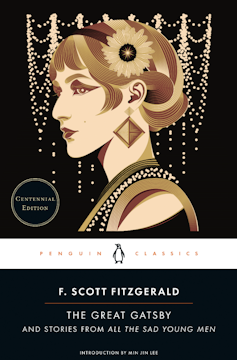
Penguin books
Classic literature is lavishly adorned with bad mums. I’m going with a sleeper hit — Daisy Buchanan in The Great Gatsby, aka the love of Jay Gatsby’s life. Daisy studiously neglects her daughter Pammy, a child of about two, throughout the novel. She says she hopes Pammy will grow up to be a “beautiful little fool”, and so, frankly, do the readers, just so poor Pam won’t ever know her mother cheated on her father with a guy who ends up murdered in his own swimming pool, after being mistaken for Pammy’s own father Tom. And here’s hoping Pammy won’t know her mom Daisy killed her dad Tom’s lover Mabel in a hit-and-run accident, while drunk driving someone else’s car.
– Sophie Gee
May Callaghan, I for Isobel – Amy Witting
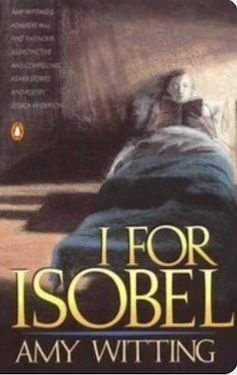
Goodreads
The mother in Amy Witting’s I for Isobel simmers with a rage that shapes the whole Callaghan family. But it is the bright, bookish younger daughter, Isobel, who attracts most of May Callaghan’s venom. Isobel feels her mother’s anger as “a live animal tormenting her”. May denies nine-year-old Isobel a birthday celebration; she labels her “a born liar”. Isobel wrests back power by learning to withhold her desire to scream: “She wants me to scream. I do something for her when I scream.”
At her mother’s death, Isobel feels only relief.
– Carol Lefevre
The Piano Teacher – Elfriede Jelinek
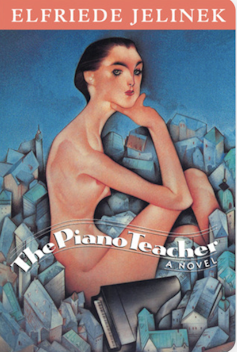
Goodreads
Erika Kohut’s Mother intrudes on every aspect of her adult daughter’s life – her movements, her body, her finances. The claustrophobic Viennese apartment they share is a site of domestic interrogation and terror, with Mother looming over Erika like a one-woman tribunal: part inquisitor and part executioner. This is domination, not maternal care, isolating Erika and driving her toward secrecy and spirals of self-harm.
In characteristically relentless and sardonic prose, Jelinek presents this relationship as a miniature of Austria’s refusal to confront its troubling political past. This is a household where desire is policed and traumatic history repressed until it sporadically erupts into terrible violence, shattering the illusions of bourgeois respectability and revealing how repression, left unchecked, becomes cannibalistic.
– Alexander Howard
The Watch Tower – Elizabeth Harrower
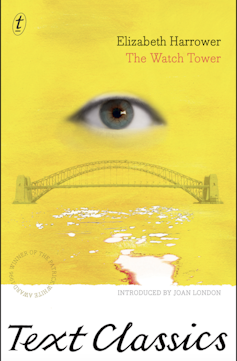
Goodreads
Selecting a worst mother from literature has been hard – I know they’re out there, but my brain refuses to decide on one, perhaps subconsciously rejecting the notion. I have settled on a bit-character in a novel with a truly grotesque patriarchal figure at its centre: Elizabeth Harrower’s 1966 novel The Watchtower.
The unnamed mother in this novel abandons her daughters with not a thought for their wellbeing, leaving them in the hands, and financial trap, of the cruel and contemptuous Felix Shaw. I know the world criticises mothers much more harshly than fathers for abandoning their children – in literature as in life – but this abandonment struck a chord in me that I cannot intellectualise. How easily Clare and Laura’s mother wipes her hands of them and how vulnerable they are in the world as a result.
– Edwina Preston
Serena Joy, The Handmaid’s Tale – Margaret Atwood
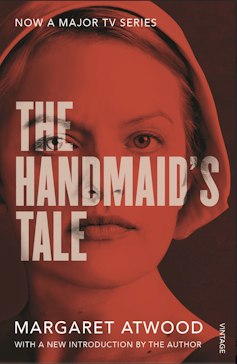
Penguin Books
My pick for worst mother is controversial. Throughout both Margaret Atwood’s The Handmaid’s Tale and its sequel The Testaments we don’t get to see Serena Joy Waterford mothering, which, I think, is a mercy. But I’ve chosen Serena, the wife of a Commander in the republic of Gilead, because she is instrumental in destroying the very notion of what it is to be a mother, which is that of deep and compassionate care. Serena sees children as a right and a prize for religious piety – at the expense of the child and all who care for them. As Sheila Heti has written, “The whole world needs to be mothered.”
Just not by Serena.
– Natalie Kon-yu
Nina, Heartsease – Kate Kruimink
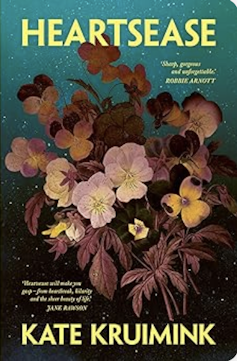
Goodreads
In Tasmanian writer Kate Kruimink’s exquisite novel Heartsease, the twentysomething Ellen (Nelly) is a daughter both made by her mother Nina and trying to remake herself against her. Nelly remembers every childhood slight and hurt, especially the many ways she disappointed her mother as an example of young womanhood: dishevelled, shy, awkward and unlike the elegant, socialite Nina in most ways. Nelly can’t show her mother or ask her questions about incidents from the past, can’t ask why it is she’s never met her maternal grandmother. For Nina died when Nelly was a teenager, and a dead mother really is the worst.
– Jane Messer
Helen, Oh Joseph, I’m so tired – Richard Yates
Richard Yates frequently drew on his personal history in his fiction, and so it’s unsurprising that he repeatedly returns to his turbulent relationship with his own mother, the erratic Ruth “Dookie” Maurer. Dookie appears in various forms in many of Yates’s novels and stories, but is perhaps best realised as the frustrated sculptor Helen in Oh Joseph, I’m so tired from Yates’ collection Liars in Love. The story is unsparing in its depiction of her awful self-centredness and bigotry, but also captures her fragility and desperate need to maintain her delusions of imminent success. Helen’s self-deception is depicted as heart-breaking and absurd, but it also briefly transforms the grim lives of her children into something more privileged and magical.
– Julian Novitz
Maggie, Bodies of Light – Jennifer Down
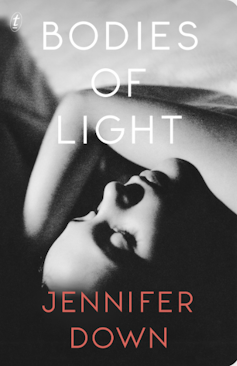
Goodreads
I can’t entertain a “worst” case scenario for any literary mother because the trope of the monstrous mother is alive and well and continues to cause damage. Rather, I draw attention to the complex, deeply flawed character of Maggie in Jennifer Down’s 2022 Miles Franklin winner, Bodies of Light. The survivor of a childhood marked by drug addiction, grief and abuse, Maggie’s humble attempt at conventional marriage and motherhood fails miserably when three of her babies die in her care. Sound familiar? Down’s achievement here is to show us how the idea of monstrous mothers endures in our culture. The cost is real.
– Julienne van Loon
Mrs Bannerman, The Last House on Needless Street – Catriona Ward
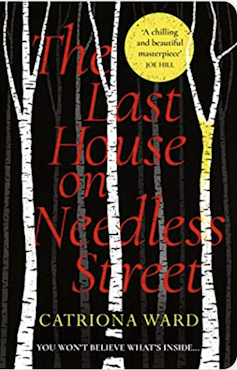
Goodreads
There is no shortage of horrible parents in fiction, but few have horrified me more than Ted’s mother, Mrs Bannerman, in Catriona Ward’s acclaimed The Last House on Needless Street. Her evil is conveyed to the reader via flashbacks that may or may not lead us to conclude that an adult Ted may or may not also be evil. In a suspenseful novel full of ambiguity and uncertainty, there’s nothing vague or uncertain about the abuse that the young mother subjects her son to and the pleasure that she derives from hurting him. Not one for the squeamish.
– Ali Alizadeh
Muriel Cleese, So, anyway … John Cleese
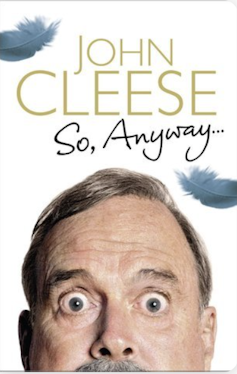
Goodreads
Most accounts of a “bad mother” are complicated by the familiar ambivalence of love-hate relationships. This isn’t the case in John Cleese’s autobiography So, Anyway …. Here the author castigates his mother as “self-obsessed and anxious”, associating this with “her extraordinary lack of general knowledge”, and accusing her of being a person who “had no information about anything that was not going to affect her life directly in the immediate future”. This led to “a constant state of high anxiety” and a desperation to have everything “her own way”. The coruscating nature of Cleese’s unmitigated bile is oddly refreshing.
– Paul Giles
Mrs Skewton, Dombey and Son – Charles Dickens
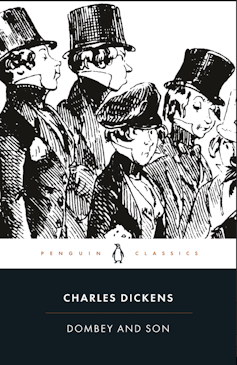
Penguin books
Dickens’ mothers generally fail by dying romantically or miserably before the action of the novel begins. So it is with the first Mrs Dombey in Dombey and Son. The second Mrs Dombey’s mother, however, is a more durable monster of vanity and manipulativeness. “Cleopatra” (her preferred name) Skewton is the freeze-dried belle of Leamington Spa, decayed and held together by cosmetics. Her aim is to sell her statuesque daughter, Edith, in marriage for the best available price. In succeeding, she finishes the job of destroying Edith’s sense of her own value. Fortunately, Edith has enough hauteur (an Australian might call it mongrel) to fight back.
– Robert Phiddian
Do you have a nomination for the worst mother – or father – in literature? If so, let us know by scrolling to the end of this article and adding your choice in the comments.
